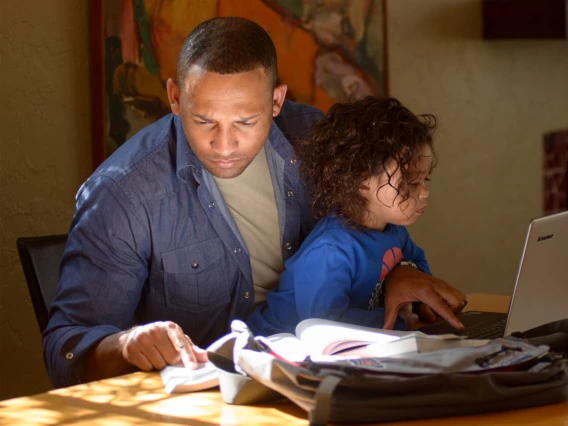Applied Humanities: Fashion Studies Emphasis
Bachelor of Arts
Quick Facts

Top 3%
Online Bachelor's
Program in the Nation
- U.S. News & World Report, 2025
TOP 25
Public Flagship
University
- U.S. News & World Report, 2024
Work towards a highly satisfying, creative, and inspiring career in the world of fashion. In the BA in Applied Humanities: Fashion Studies emphasis, you will develop technical and philosophical knowledge, as well as practical skills in areas including fabric technology, visual communication techniques, consumer behavior, and more.
More than just seasonal trends, fashion is a cultural language, economic powerhouse and artistic force felt worldwide. Fashion and the humanities are highly interdisciplinary fields. Closely examining these fields gives students the skills necessary to engage in ethical issues and sustainability, supply chain management practices, and sales analysis with a humanistic approach. You will also gain a deeper understanding of the relationship between human culture and fashion.
The BA in Applied Humanities emphasis teaches students cross-functional, creative, interpersonal, high-level skills and abilities critical for the global economy's future. This degree meets the demands of professional programs with a broader interdisciplinary perspective. This humanistic perspective offers a vital edge in rapidly changing professions.
The program involves a mandatory internship that can be completed remotely.
*Residents of some U.S. Territories may not be eligible. Please see our Eligibility & State Authorization page for more information.
Courses in this emphasis include:
This course is a comprehensive overview of how the fashion business works. The course will feature topics covering the past and present in fashion personalities, fads, pop culture, product development and retail. Students will examine fashion's ethical awareness of the twenty-first century. (Only available in Fall - Prerequisite to all other FCSC courses)
This course is a study of consumer behavior and fashion adoption processes in contemporary society, the nature of fashion theories, the life-cycle, social and cultural processes and evolution of fashion. The course explores the role of fashion in the global economy in general and in the fashion business industry in particular.
This course explores the fashion industry’s ongoing evolution. Students will gain a greater understanding of all aspects of fashion promotion that is necessary for student success. Students plan and develop sales promotion activities in order to achieve specific marketing and communications objectives.
In this program, students learn the relationship between forecasting, trend prediction, external, social changes, and historical style movements. Students will analyze past styled movements and establish an understanding of historical context, consumer trends, buying patterns, fads, and cults. Students will research color palettes and synthesis trends for new products by gaining insight into consumers' attitudes and lifestyles phases.
This course integrates the chemical composition, molecular arrangement, and physical structure of natural and manufactured fibers. Yarn and fabric manufacturing processes, as well as finishing techniques, are included. Attention is given to how these characteristics and techniques affect the function, performance, and quality of textile products.
This course presents a comparative examination of fashion across different cultural perspectives using Western and non-Western examples. A three-pronged approach will be taken to distinguish dress across cultures, uncovering its relationship to human beings as biological, aesthetic, and social creatures.
Outcomes
Skills
Earning your Bachelor of Arts in Applied Humanities: Fashion Studies Emphasis will build core skills, including:
- Abstract and critical thinking
- Analytical abilities
- Collaboration
- Entrepreneurial skills
- Flexibility
- Innovation development
- Intercultural competence
- Leadership
- Opportunity recognition
- Oral communication
- Organizational skills
- Problem solving
- Professionalism
- Resource mobilization
- Storytelling
- Strategic planning
- Written communication
Potential Career Paths
Graduates of the Applied Humanities: Fashion Studies program will be prepared to pursue careers in the following fields:











